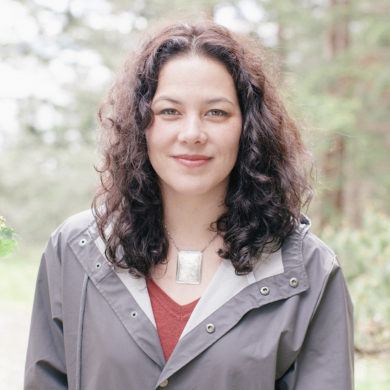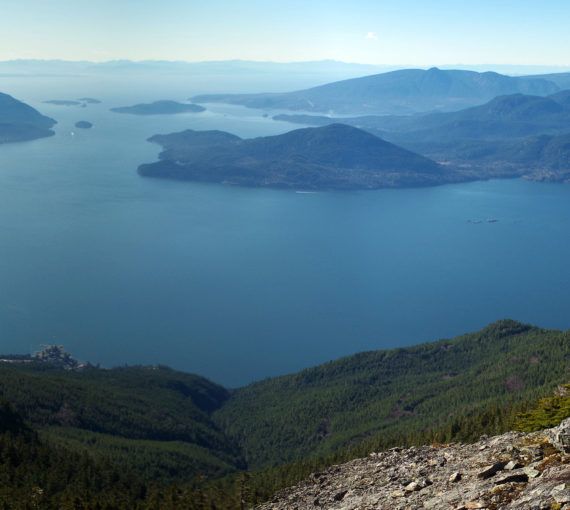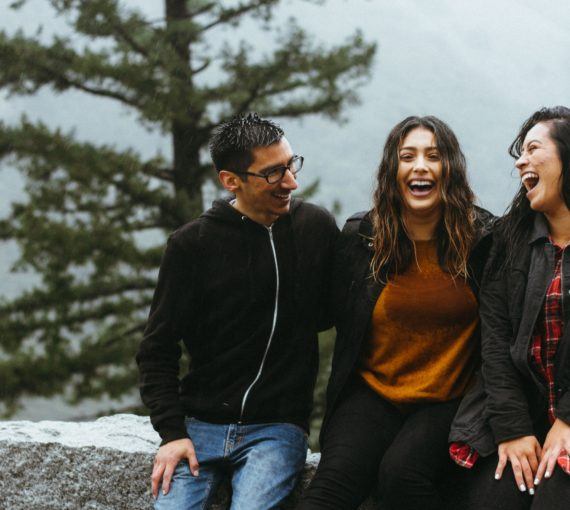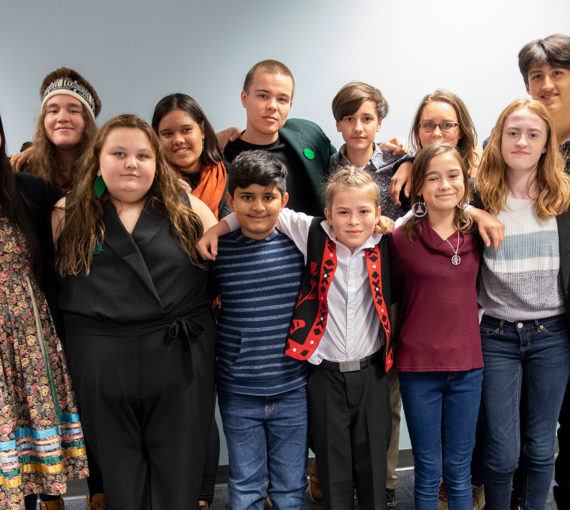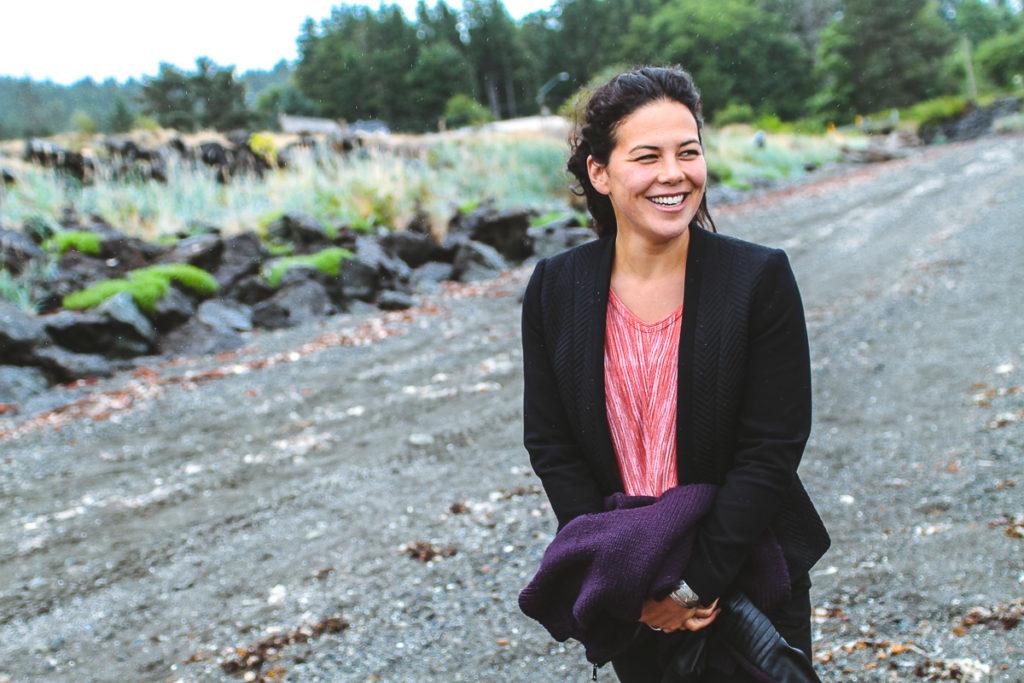
Severn Cullis-Suzuki, incoming David Suzuki Foundation executive director, environment and culture activist and author. (Photo: Patrick Shannon)
Last fall, the David Suzuki Foundation announced that I would be joining the team full-time this September as executive director. I write you today with a deep sense of excitement, responsibility and alignment for taking up this work.
I’ve grown up with the Foundation. More than 30 years ago, my parents Tara Cullis and David Suzuki pulled together a crew of friends and colleagues and began to build the Foundation, which we are all part of today.
The first office was around the corner from my elementary school, above a Vancouver autobody shop. My mother, Tara, was the founding executive director. It was exciting, and hard work! I witnessed many challenges and incredible growth. Growing up with the Foundation, I sensed an overwhelming spirit of empowerment — and the knowledge that we were not alone in the fight for Earth. By organizing with others, we can create change.
I started organizing and speaking out for environmental and social justice when I was nine, and never stopped.
I’m a lifelong activist for intergenerational justice — justice for future generations. I started organizing and speaking out for environmental and social justice when I was nine, and never stopped. I’m proud of being part of the earthcharter.org movement, and of my work as a communicator for environmental justice. Eventually I pursued science to complement my activism, earning a B.Sc. in evolutionary biology and an M.Sc. in ethnoecology. I am now finishing my doctorate in linguistic anthropology. I need this interim period to finish my PhD and my work with the Haida language.
I joined the DSF board in my mid-20s and was a director for 14 years. I am proud of the work the Foundation has accomplished.
Since 2007, I’ve lived in the community of Skidegate, Haida Gwaii, the village of my husband Gudt’aawt’is Judson Brown. Haida Gwaii has been the home of the Haida Nation for over 13,000 years. It’s been a privilege to live here as an immigrant on Haida land, in a Haida family.
I’ve come to realize that language is a portal to different perspectives, to different frameworks for how to be a human. It is a framework for relating to Earth and all our relatives on it.
Living here has been a deep grounding, and I have received profound teachings on how to be a good community member, and on Haida values, relationships to the earth, concepts of leadership and the daily privileges and realities of living in a First Nations village.
I’ve come to realize that language is a portal to different perspectives, to different frameworks for how to be a human. It is a framework for relating to Earth and all our relatives on it. This is where I have been working to make a difference in my community — in Haida language revitalization: facilitating the creation and execution of university-level Haida language courses accredited by the University of Northern B.C., co-founding the Skidegate Language Nest program, co-founding and running the Haida Gwaii Mentor Apprentice Program and, most importantly, creating a home environment where Haida is used daily.
Which brings me to this moment: 2021.
The COVID-19 pandemic has completely disrupted our status quo. This is clear evidence that our relationship with the natural world is out of balance.
Our narrative has shifted. We now find ourselves in a time of great humbling. As a global society, we are being reminded that:
- Nature is the true bottom line.
- Science and knowledge are essential to our survival.
- We are all connected — what happens on one side of Earth affects us all.
- We have agency; our actions matter! What each of us chooses to do (like staying home and washing our hands!) has a great impact on others.
These are powerful teachings that the world has reawakened to today. These truths are also pillars of the DSF philosophy.
I’m passionate about healing our human relationship with Earth, but how we relate to each other as a human family is as important. We will not find a sustainable way of being without respect for Indigenous rights and title, or without diversity, inclusion, collaboration and distributed power.
This is why I decided to move my family from sacred Haida Gwaii to my hometown of Vancouver, to work with the DSF. The time is now, because of the teachings that are clear in the wake of COVID-19, and because we have no time to lose for climate action. The DSF is uniquely positioned to serve as an amplifier of the work our country needs to do now to advance climate solutions, maintain ecosystems where nature is thriving again and create sustainable communities.
I’m passionate about healing our human relationship with Earth, but how we relate to each other as a human family is as important. We will not find a sustainable way of being without respect for Indigenous rights and title, or without diversity, inclusion, collaboration and distributed power. We can only be successful if we learn from each other and help each other do the necessary work to advance the aims of justice on its many fronts, toward intergenerational justice.
Thank you for being on this journey with us.
I look forward to working with the DSF staff, board of directors and you, for the protection of nature’s diversity and the well-being of all life, now and for the future.
Our work
Always grounded in sound evidence, the David Suzuki Foundation empowers people to take action in their communities on the environmental challenges we collectively face.
